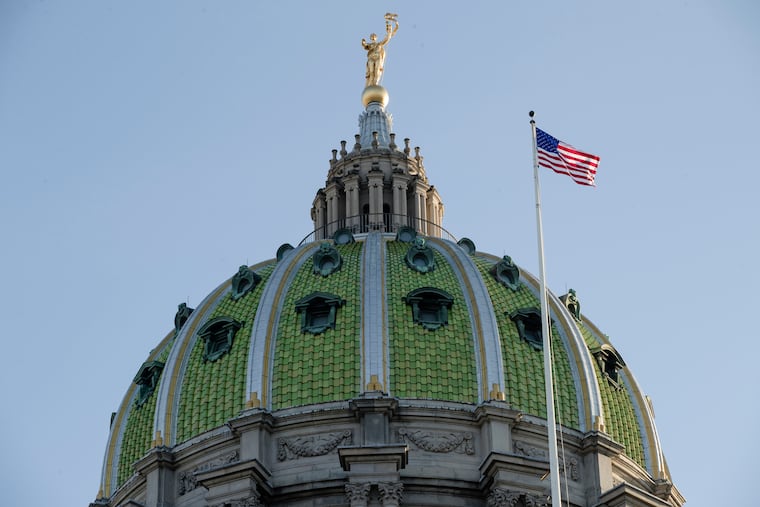State budgets will be reeling from coronavirus — but there may be lessons for next time | Editorial
Pennsylvania, New Jersey, and other states have rainy day funds for a reason. But a decade of depletion has rendered them less useful as both Harrisburg and Trenton begin to grapple with the fiscal superstorm the coronavirus is likely to cause

The public health and economic crises caused by the coronavirus pandemic are unprecedented. While the virus will ultimately be reduced if not entirely eliminated, the economic tremors will continue. Many businesses and industries will recover and jobs and livelihoods will be restored, but many states and cities are going to be reeling for some time.
Countless businesses are closed, hundreds of thousands of people in both states are out of work, and the costs of the deadliest pandemic in memory are mounting. The impact on current and proposed budgets — let alone the effect on essential public services — is difficult to gauge, as is the likely rise in the number of those qualifying for Medicaid, food stamps, and other safety net supports. But last week, a Spotlight PA story in The Inquirer quoted a national tax expert describing Pennsylvania as “particularly ill-prepared” for the pandemic’s fiscal consequences.
That’s due to a few factors. One is long-term budgetary policy choices. For example, the closure of casinos and the loss of that gaming revenue is likely to be painful for Pennsylvania, whose gambling-related tax revenue is about five times that of New Jersey’s — though still relatively small as a percentage of the overall budget. The closing of state liquor stores in Pennsylvania will also have an impact on revenues. And when many people lose their jobs, high unemployment figures don’t only mean heavier demands on all social services, but a reduction in income tax revenue — and that’s pain that both Pennsylvania and Philadelphia will feel far more than New Jersey, at least in the short term.
The choices state leaders make when times are good have a direct impact on what happens when times are bad. After the 2008 crash decimated revenues and hiked demand for services in Pennsylvania and New Jersey, then-Govs. Ed Rendell and Jon Corzine each were able to tap more than $700 million on hand in their respective rainy day funds. Until recently, none of their successors had replenished so much as a penny.
Pennsylvania did manage to build a reserve fund recently, but at $340 million, it’s only sufficient to cover government operations for three days, according to the Spotlight PA report. Last year, Moody’s Analytics found that a typical state needs to have 11% of its budget in reserve. Pennsylvania has around 2%.
No amount of prudence, rainy day funding, or mathematical modeling could have prepared us for what’s happening. But solid credit ratings enable governments to obtain more favorable interest rates when revenues fall, spending is cut, and borrowing increases, as typically occurs during an economic downturn.
While adjectives like typical may not yet apply in the current crisis, the massive mobilization of public and private resources finally underway in the United States will bring the spread of the virus under control. Even while state leaders figure out how to manage and respond with the help taxpayers need, it’s not too soon for Pennsylvania and New Jersey to start rethinking their budgeting priorities and taxation policies going forward.